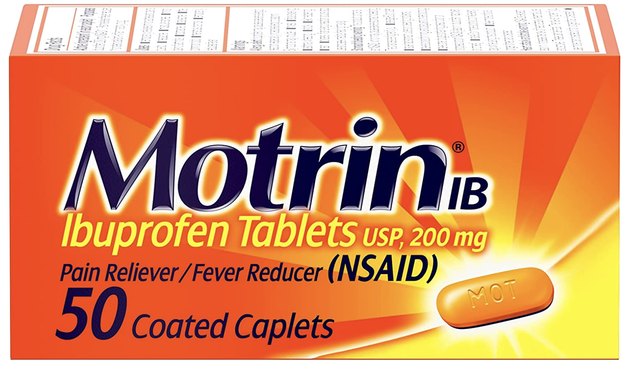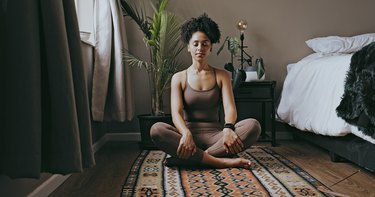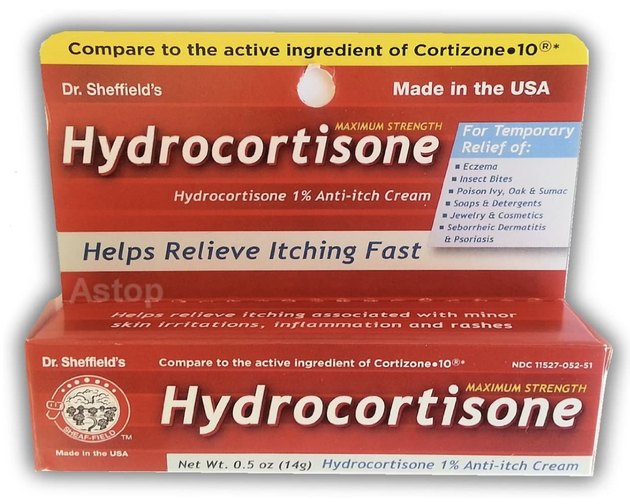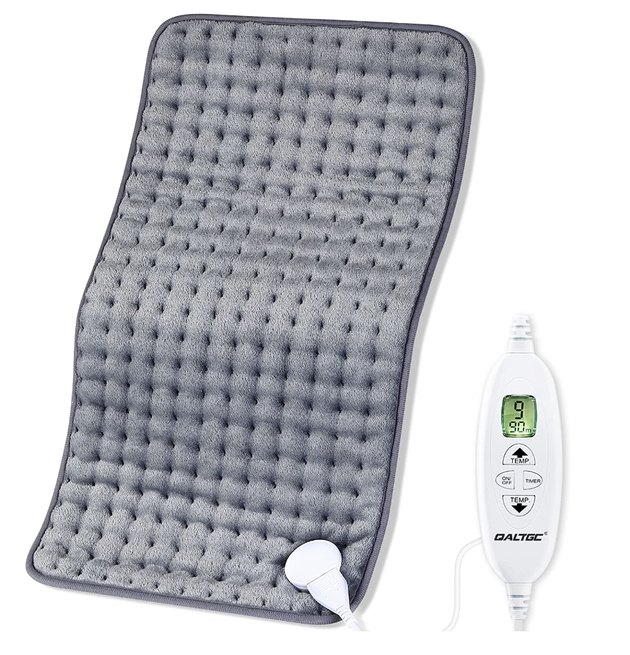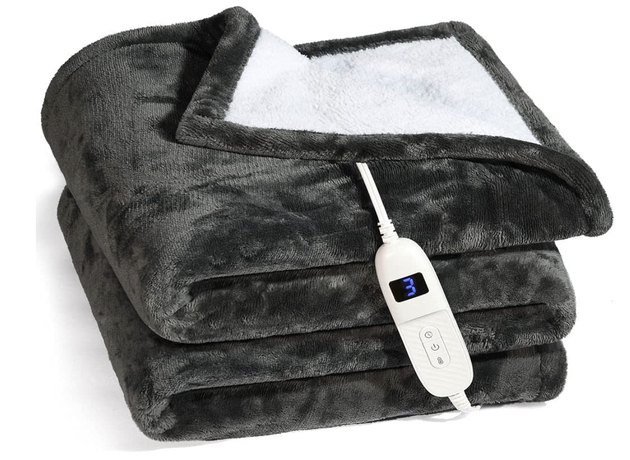
Getting a good night's sleep is important for every aspect of your health. But if you have psoriatic arthritis (PsA), your symptoms may make achieving a good night's rest difficult.
With PsA, instead of sleeping at night, you may often find yourself lying awake with itchy skin and stiff, painful joints.
Video of the Day
Video of the Day
And you're not the only one. A September 2019 study in Dermatology and Therapy found the overwhelming majority — more than 85 percent — of people with psoriatic arthritis report trouble sleeping.
Here, experts explain why PsA makes it hard to sleep and share their top tips for getting quality rest with the condition.
Why Does Psoriatic Arthritis Make It Hard to Sleep?
Unfortunately, itchy skin and painful, stiff joints can keep you up at night, even if you're tired.
"Psoriatic arthritis can certainly make it difficult to sleep. The condition causes joint pain, stiffness and inflammation, which can worsen at night, making it difficult to find a comfortable sleeping position," says Carlie Gasia, a certified sleep science coach in Charlotte, North Carolina.
"Chronic pain and discomfort can also disrupt sleep patterns, leading to poor sleep quality and frequent awakenings," she adds.
In fact, a June 2017 study in the Journal of Rheumatology found that poor sleep from PsA is associated with fatigue, anxiety and a lower quality of life.
Fortunately, there are things you can do to improve your sleep and feel better when you have PsA.
1. Get Some Gentle Exercise During the Day

Exercising during the day is good for your health, and it can also help you sleep better at night. Indeed, regular movement can lead to more zzzs as well as sleep that's deeper and more restorative, according to CreakyJoints.
That's true for everyone, but as an added benefit for people with PsA, regular exercise can help reduce symptoms like joint pain and stiffness, according to a November 2021 review in Clinical Rheumatology. That can make it easier to fall and stay asleep.
So, what kind of exercise is best? The Physical Activity Guidelines for Americans recommend adults get at least 150 minutes of moderate-intensity aerobic exercise each week.
Low-impact activities like walking, biking and swimming are all good options that are easy on the joints, especially if you're new to exercise. But higher-impact workouts like running or HIIT aren't off the table if they feel good for you and your doctor gives the OK.
You should also aim to do a strength-training workout at least twice a week, per the Physical Activity Guidelines. That could mean working out with weights, doing body-weight exercises like squats and push-ups or using resistance bands.
In a February 2018 randomized controlled trial in Clinical Rheumatology, people with PsA who performed resistance exercises twice a week for 12 weeks reported better quality of life, including less pain. And less pain could make sleep easier to come by.
2. Manage Pain and Inflammation With Medication
Often, PsA pain and stiffness can be relieved or reduced by medication. Your rheumatologist can help you find the best treatment option based on your symptoms.
Commonly prescribed medications include DMARDs (disease-modifying anti-rheumatic drugs) like methotrexate, which can help prevent and reduce disease progression.
For quick relief at home before bed when you're dealing with a symptom flare, you can try over-the-counter pain relievers like acetaminophen (Tylenol) or ibuprofen (Motrin).
Motrin is a type of medication called an NSAID (non-steroidal anti-inflammatory drug), which can not only reduce pain but also help reduce inflammation in the joints.
Just make sure you're not popping a pill every night before bed, which could lead to a host of dangerous side effects. If you're taking these meds often, talk to your doctor about other options.
3. Use Relaxation Techniques to Reduce Stress Before Bed
Anything that can promote relaxation before bedtime can help you sleep a little better. Try gentle breathing techniques like this one recommended by Johns Hopkins Medicine:
- Lie down in a comfortable position.
- Close your eyes.
- Breathe in and out slowly for at least five minutes.
- Focus on your breathing as you relax.
"Restful sleep is crucial to control autoimmune diseases like psoriatic arthritis, and practicing mindful techniques like meditation, yoga, etc., could help," says Nilanjana Bose, MD, a rheumatologist in Houston who treats PsA.
These exercises can help center you and prepare your mind for a restful night. Plus, they can take your mind off itching if it tends to flare at night.
4. Apply Topical Creams or Balms
If your itching skin keeps you up at night, it's a good idea to speak with a dermatologist to find out what psoriasis creams or balms might be helpful.
"Controlling psoriasis' cutaneous (skin) involvement can also improve sleep, as half of patients with psoriatic plaques will have itching as a prominent symptom impairing their quality of life," says Harry Dao, MD, a dermatologist and chair of dermatology at Loma Linda University Health.
Some topical products you rub into your skin may include anti-itch creams like hydrocortisone:
5. Practice Good Sleep Hygiene
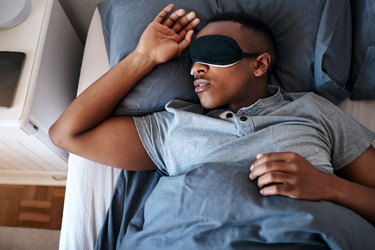
According to the National Institutes of Health (NIH), good sleep hygiene includes activities that prepare your mind and body for sleep. This is important for anyone, but especially if you're already having trouble sleeping due to symptoms of psoriatic arthritis.
Good sleep hygiene includes things like limiting the amount of caffeine you drink toward the end of the day (like tea, coffee or soda) and limiting your alcohol intake a few hours before bed, as both can negatively affect your sleep.
Alcohol is also known to increase inflammatory markers in the body, which can worsen PsA symptoms, per a May 2016 study in the Journal of Rheumatology.
The NIH also recommends avoiding heavy meals right before bed and making sure your room is dark, cool and quiet — about 65 degrees Fahrenheit is the best temperature for sleep. (If your room isn't naturally dark, investing in blackout blinds or a sleep mask may be a good idea. And if it's noisy near you, consider turning on a white noise machine to drown out ambient sounds.)
Also, avoid using your phone and other technology in the hours or two before bed, as the blue light can disrupt your circadian rhythm, per a December 2019 study in the Journal of Biophotonics. Plus, scrolling through the news or social media can stimulate your brain, keeping you wide awake and delaying REM sleep, according to the Cleveland Clinic.
Tip
Sticking to a consistent bedtime and wake-up time each day (even on the weekends) can help maintain your natural circadian rhythm and prime your body for better sleep.
6. Try Heat or Cold Therapy
Cold and heat therapy can help reduce the swelling, inflammation and joint stiffness that come with PsA, per the Cleveland Clinic.
This is a safe option that can be used multiple times a day, but doing so before bed can be especially relaxing and help ease your symptoms so you can drift off.
Gasia suggests using heating pads, electric blankets, gel packs or cold packs, and the Cleveland Clinic says to apply them for 15 to 20 minutes at a time.
7. Pick Cooling Sheets and Bedding
In addition to having a supportive, comfortable mattress, it's also important that your sheets and bedding are comfortable and conducive to a good night's rest. Consider mattresses and bedding that have a cooling effect, which can help manage itchy skin.
There are a few things to look for when picking out sheets: "Opt for soft, breathable sheets made of natural materials like cotton or bamboo. Moisture-wicking or hypoallergenic bedding may also be beneficial," Gasia says.
When to See a Doctor
If you have PsA and are struggling to get a good night's sleep despite trying the remedies above, talk to your doctor about other options for symptom relief. They might also encourage you to meet with a sleep specialist.
Additionally, if your sleep struggles are affecting your mental health (research shows that poor sleep can increase negative emotional responses to stressors, according to the Columbia University Department of Psychiatry), consider seeking out a mental health professional who can offer support and advice.
- The Journal of Rheumatology: "Sleep disturbance in psoriatic disease: Prevalence and associated factors"
- Dermatology and Therapy: "Factors influencing sleep difficulty and sleep quality in the Citizen Pscientist Psoriatic Cohort"
- Scientific Reports: "Validation of the Sleep Regularity Index in Older Adults and Associations with Cardiometabolic Risk"
- Cleveland Clinic: "Why you should ditch your phone before bed"
- Johns Hopkins Medicine: "Sleepless Nights? Try Stress Relief Techniques"
- National Library of Medicine: "Insomnia: Relaxation techniques and sleeping habits"
- The Journal of Rheumatology: "Sleep Disturbance in Psoriatic Disease: Prevalence and Associated Factors"
- Clinical Rheumatology: "Psoriatic arthritis and physical activity: a systematic review"
- The Journal of Rheumatology: "Alcohol Intake and Risk of Incident Psoriatic Arthritis in Women"
- Journal of Biophotonics: "The Inner Clock — Blue Light Sets the Human Rhythm"
- Cleveland Clinic: "Natural Remedies for Psoriatic Arthritis"
- Columbia University Department of Psychiatry: "How Sleep Deprivation Impacts Mental Health"
- Harry Dao, MD
- Nilanjana Bose, MD
- Centers for Disease Control and Prevention: "How Much Sleep Do I Need?"
- Office of Disease Prevention and Health Promotion: "Physical Activity Guidelines for Americans, 2nd Edition"
- CreakyJoints: "Exercising With Psoriatic Arthritis: How to Get Started and Work Out Safely"
- Clinical Rheumatology: "A resistance exercise program improves functional capacity of patients with psoriatic arthritis: a randomized controlled trial"
Is this an emergency? If you are experiencing serious medical symptoms, please see the National Library of Medicine’s list of signs you need emergency medical attention or call 911.

